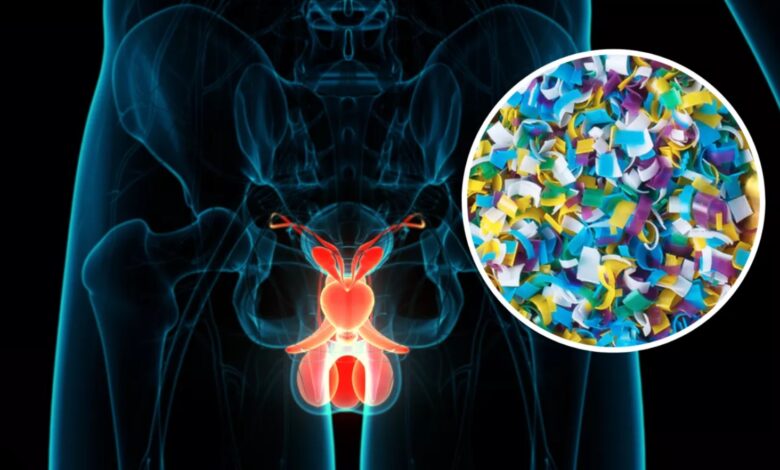
Microplastics have been discovered in human testicles, raising concerns about their potential impact on male fertility. This finding comes amidst a backdrop of declining sperm counts in men over the past few decades, with chemical pollution, such as pesticides, often implicated.
In a recent study, scientists tested 23 human testes and 47 testes from pet dogs, finding microplastic pollution in every sample. While the preserved human testicles could not be assessed for sperm count, the dog testes showed a correlation between higher PVC contamination and lower sperm counts. Although this suggests a possible link, further research is necessary to establish causation.
Microplastics have already been found in human blood, placentas, and breast milk, indicating widespread contamination. Their potential to lodge in tissues and cause inflammation, similar to air pollution particles, is a growing concern. Additionally, chemicals in plastics may pose health risks.
In March, doctors reported a heightened risk of stroke, heart attack, and early death in individuals with microplastic-contaminated blood vessels.
Professor Xiaozhong Yu from the University of New Mexico expressed initial scepticism about microplastics penetrating the reproductive system. The results from both dogs and humans were surprising, particularly given the higher plastic concentration in human testes—330 micrograms per gram of tissue compared to 123 micrograms in dogs.
Polyethylene and PVC were the most commonly found microplastics.
This study, published in the journal Toxicological Sciences, highlights the need for further investigation into the health impacts of microplastics. Previous research, including a 2023 Chinese study, also found microplastics in human testes and semen, and animal studies have shown reduced sperm counts and hormonal disruptions due to microplastic exposure.





